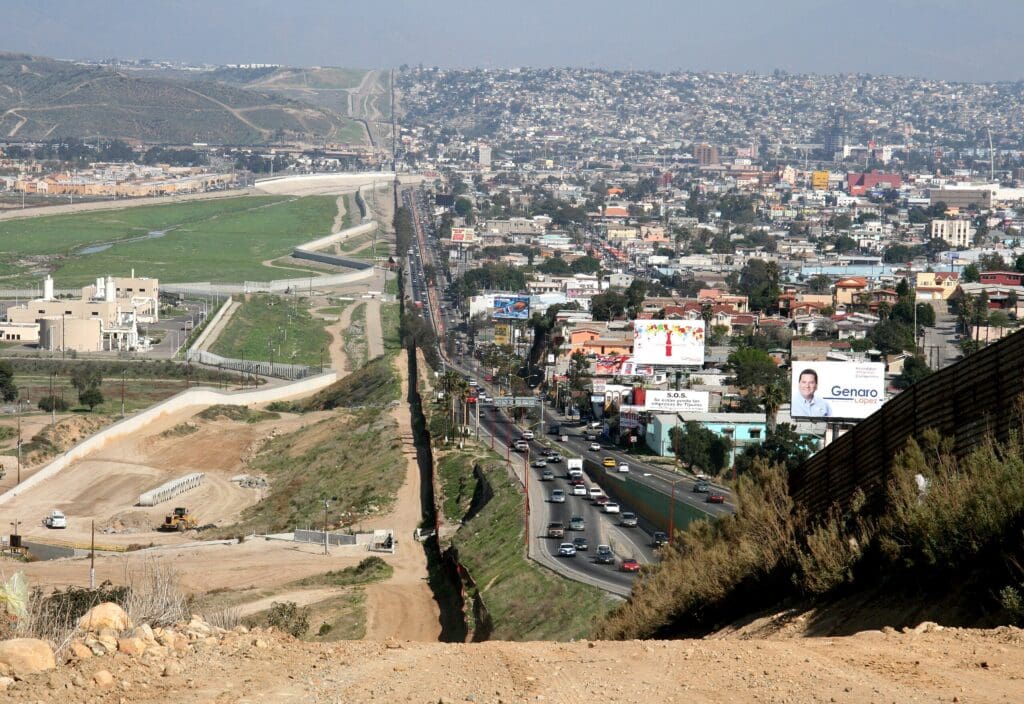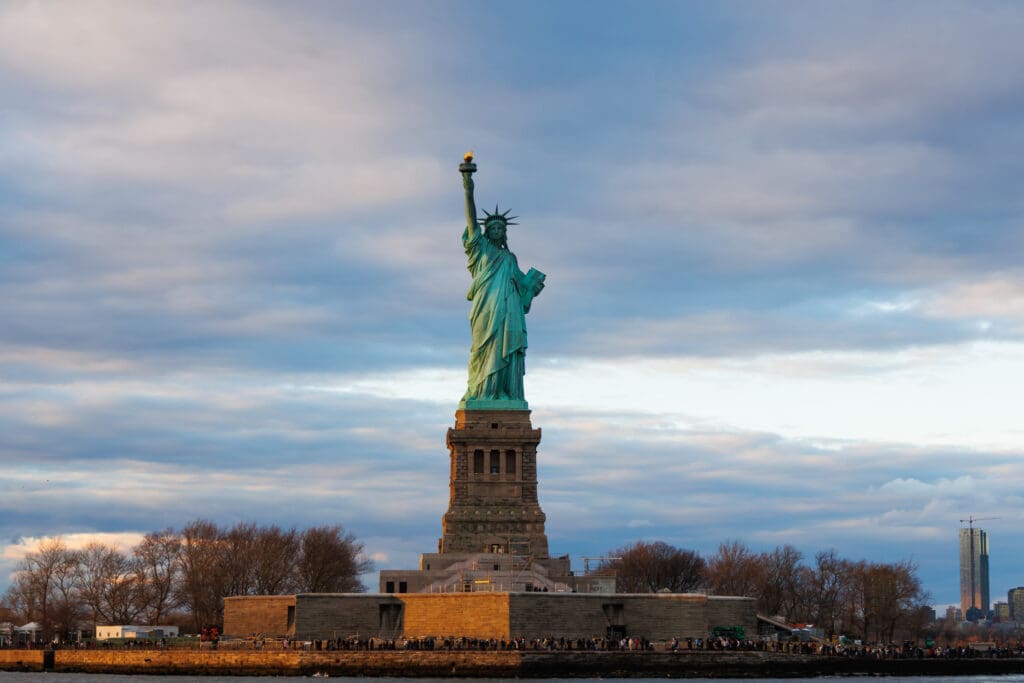Para leer este blog en español, haga clic aquí.
By Ruth Rosas
When we think about walkability, we often focus on physical surroundings – the streets, public spaces, and amenities that make walking and rolling safe and accessible. However, for those who feel exposed or unsafe due to intolerance, harassment, or threats of violence, walkability is denied. In this blog series (read our introduction here), we explore the ways social, cultural, economic, and political factors affect the right of all people to move freely and safely in their communities.
Mobility justice is a framework that examines and seeks to address historical and ongoing transportation and infrastructure inequities that disproportionately affect marginalized communities. America Walks supports a vision for a world rooted in social justice where people feel safe existing on the streets and can build lives experiencing the full joy of movement and community regardless of their identities. We believe this is essential to promote the health, well-being, and success of our communities.
Imagine taking a walk to clear your head, catch the bus, or grab coffee with friends, only to be stopped, questioned, and surveilled simply because of who you are. Your skin color, your clothes, and even the neighborhood you are in become reasons for suspicion. Racial profiling in the public realm isn’t new but remains an under-acknowledged threat to safety, movement, freedom, and belonging.
For immigrants, refugees, and asylum seekers, the stakes are even higher. Your commute to work or to get groceries could mean an encounter with law enforcement and the threat of detention, deportation, and separation from your family, loved ones, and the life you have built. Even crossing the street can feel dangerous. As cities continue to punish jaywalking, disproportionately targeting Black and brown pedestrians, the consequences of a jaywalking ticket aren’t just a fine but a record that could be used to prove you were somewhere you weren’t supposed to be.

Mobility isn’t just about sidewalks, protected bike lanes or speed limits. It’s also about whether people can exist in public without fear. For immigrants, their presence in a public space makes them a target, which is why immigration must be part of the mobility conversation.
Barriers to Basic Mobility for Immigrants
This fear isn’t hypothetical. It’s rooted in the lived experiences of the millions of immigrants in the United States. When you are an immigrant, the ability to move freely, safely and affordably is anything but guaranteed. As you seek work, housing, healthcare, and community, exclusionary policies severely restrict your opportunities and, ultimately, your quality of life. Every trip you take, whether by foot, bus, train, bike, or car, carries risk.
Public spaces like parks, sidewalks, plazas, and transit stops are designed as spaces for everyone, but “everyone” comes with conditions: Are you perceived as wealthy? White? Clean? Compliant? Calm? The same behaviors celebrated in affluent, white communities, such as jogging in a hoodie or listening to music, are often criminalized in Black, brown, and immigrant communities. These incidents are not isolated; they are systemic patterns shaped by a long history of policing and surveillance of certain communities.
Think about how you might take transportation for granted. You might be able to move through the world freely in ways that millions of immigrants cannot. For many of us, missing a bus or getting pulled over by police may be an inconvenience, but for some, these routine moments carry life-altering consequences. Fear of these encounters forces immigrants to stay in the shadows, limit their mobility, and sacrifice opportunities in order to protect themselves and their families.

Many immigrants rely on buses, trains, walking, and biking because they cannot obtain a driver’s license. But relying on these modes of transportation can increase vulnerability in these public spaces. Walking and biking aren’t always safer, and jaywalking laws, biking citations, and over-policing in immigrant and communities of color mean that simply existing in public space can be a liability.
Movement As Survival
For refugees and asylum seekers, mobility is survival. After fleeing violence and persecution, many find their right to move within the U.S. restricted. Many arrive with no access to a car or a driver’s license, little income for transit, barely any or no information in their language on navigating their community, and limited options for jobs, school, healthcare, or community connections. Mobility is what allows them to get to court dates, connect with services, and begin to rebuild what they lost. Without the ability to move freely, they remain vulnerable.
Black, brown, and visibly Muslim refugees are frequently targeted on the street, on public transit, and at traffic stops not for infractions, but because they are perceived to be out of place, threatening, or suspicious. The experience of hyper-surveillance, racial profiling, and hostility in public spaces often leaves them in vulnerable situations. Because some live in rural and suburban areas with virtually no public transit, they are dependent on others for transportation or they remain isolated altogether.

In today’s climate, even legal status is no guarantee of safety. Immigrants on work visas, student visas, visitor visas, as well as green card holders, can be surveilled, detained or have their legal status revoked for attending a march, speaking out about an injustice or being visible at the wrong moment. When legal status becomes conditional upon silence and invisibility, it reveals an immigration system that is not rooted in safety, justice, or democracy, but one that weaponizes legality as a tool for control.
Policing Public Spaces
Immigration law is unforgiving. Even a minor infraction — a run-in with police, ICE agents, or other law enforcement — can be used as justification for detention, deportation, or denial of status renewal. This reality forces immigrants to live in a state of constant vigilance, avoiding being in public or seeking help when harmed. This fear extends beyond daily movement; it silences immigrants. When attending protests or speaking publicly about injustices become grounds for retaliation, the fundamental pillars of our democratic right to civic participation and dissent are no longer protected.
In recent years, the rise of anti-immigrant rhetoric has brought a dangerous normalization of dehumanizing language. Labeling people as ‘illegals,’ ‘invaders,’ or criminals’ isn’t just offensive; it is done strategically to justify aggressive behavior towards immigrants. Dehumanizing immigrants undermines the constitutional guarantee of equal protection for anyone within U.S. borders, not only citizens. Stereotyping immigrants as criminals is false, deeply racist, and it fuels policies that criminalize entire communities based on identity.
All “persons”, regardless of immigration or citizenship status, are entitled to due process under the Fifth and Fourteenth Amendments of the Constitution, including the right to a fair hearing, legal representation, and freedom from arbitrary detention. Yet many immigration enforcement practices today, including expedited removals, prolonged detention without hearings, and mass raids, directly violate these principles and contradict the basic idea that everyone deserves a fair process before being forced to leave the country.
A Path Forward
As a national voice for building public spaces that allow people to safely walk and move, America Walks knows that conversations about mobility justice must include those who are denied the freedom to move. Today, people are denied the ability to move safely solely based on how they look, where they’re from, and how they are perceived.
Mobility justice demands that we confront the surveillance, policing, and xenophobia embedded in our transportation systems. It demands we stop asking people to prove their worth before they can move without fear. It means acknowledging our streets, sidewalks, and bus stops are not neutral but political. Who is allowed to use them safely and without punishment and who is targeted and excluded are shaped by systems of power.

Transportation and immigration are inseparable. If movement is a right, then that right must apply to everyone regardless of identity. That means refusing to let dehumanizing language define public policy, defending due process for all, and ensuring equal protection under the law. Because until everyone can move safely and freely, none of us will be truly free.
Through our campaigns like Freedom to Move, Communities Over Highways, and Week Without Driving, we support transportation systems that are safe, equitable, accessible, and connected for all. Join us in building streets and sidewalks where everyone can move freely, safely, and without fear.
Resources & Initiatives for Immigrant Communities:
- National Immigrant Justice Center
- Immigrant Legal Resource Center
- Catholic Charities Immigration Services
- The National Immigration Project
- Florence Immigrant & Refugee Rights Project
- Informed Immigrant
- Meeting at the Intersection: Immigrant Rights and Mobility Justice
In case you missed the previous pieces in this series, you can find them here.
Immigration rights are part of the transportation conversation, and the freedom to move is a right we all must protect. Join America Walks and make your voice heard by signing our petition and contacting your legislators.